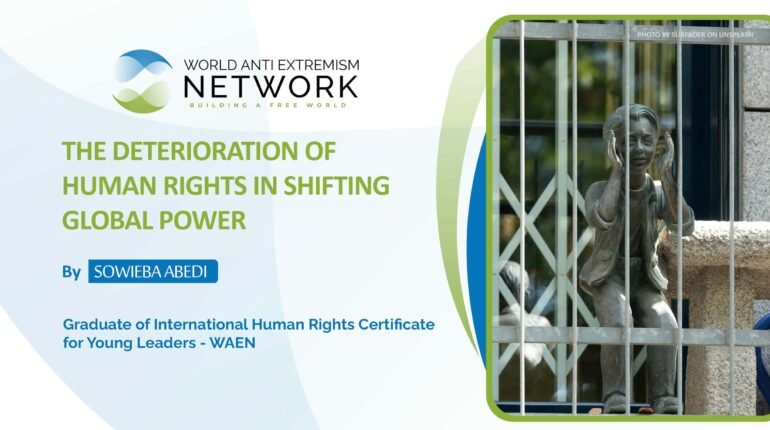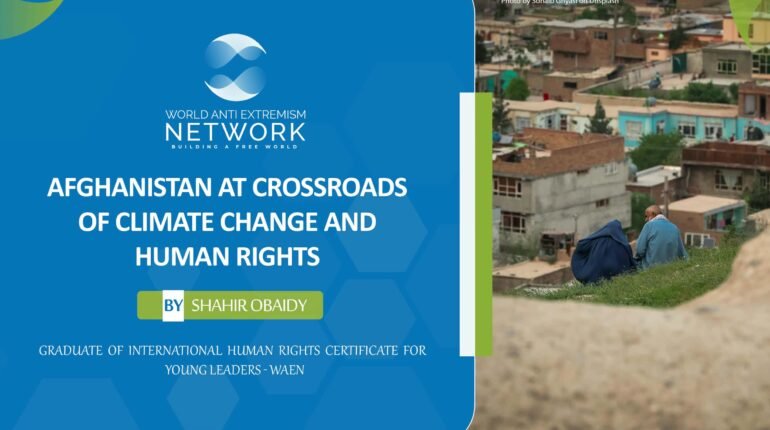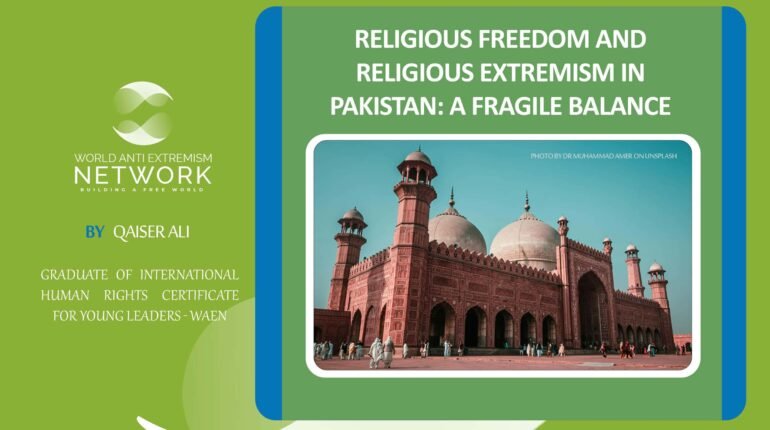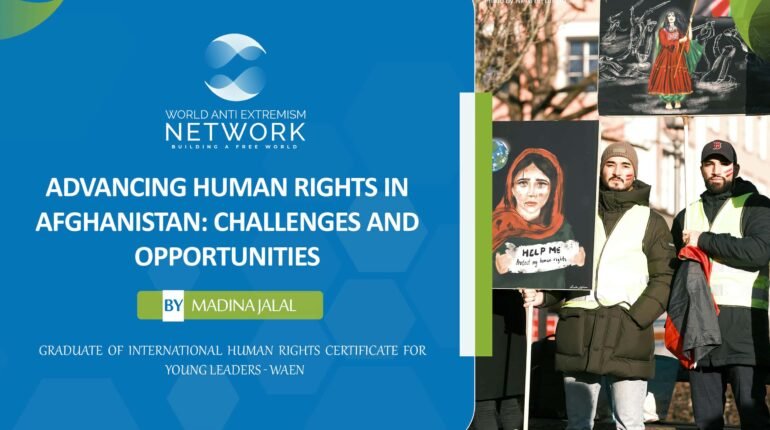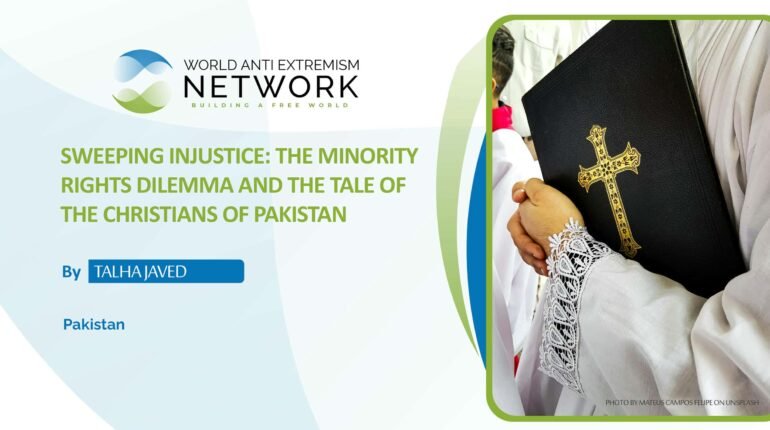Shattering the Silence: Addressing Women’s Rights and Rape in Pakistan
- World Anti Extremism Network
- Shattering the Silence: Addressing Women’s Rights and Rape in Pakistan
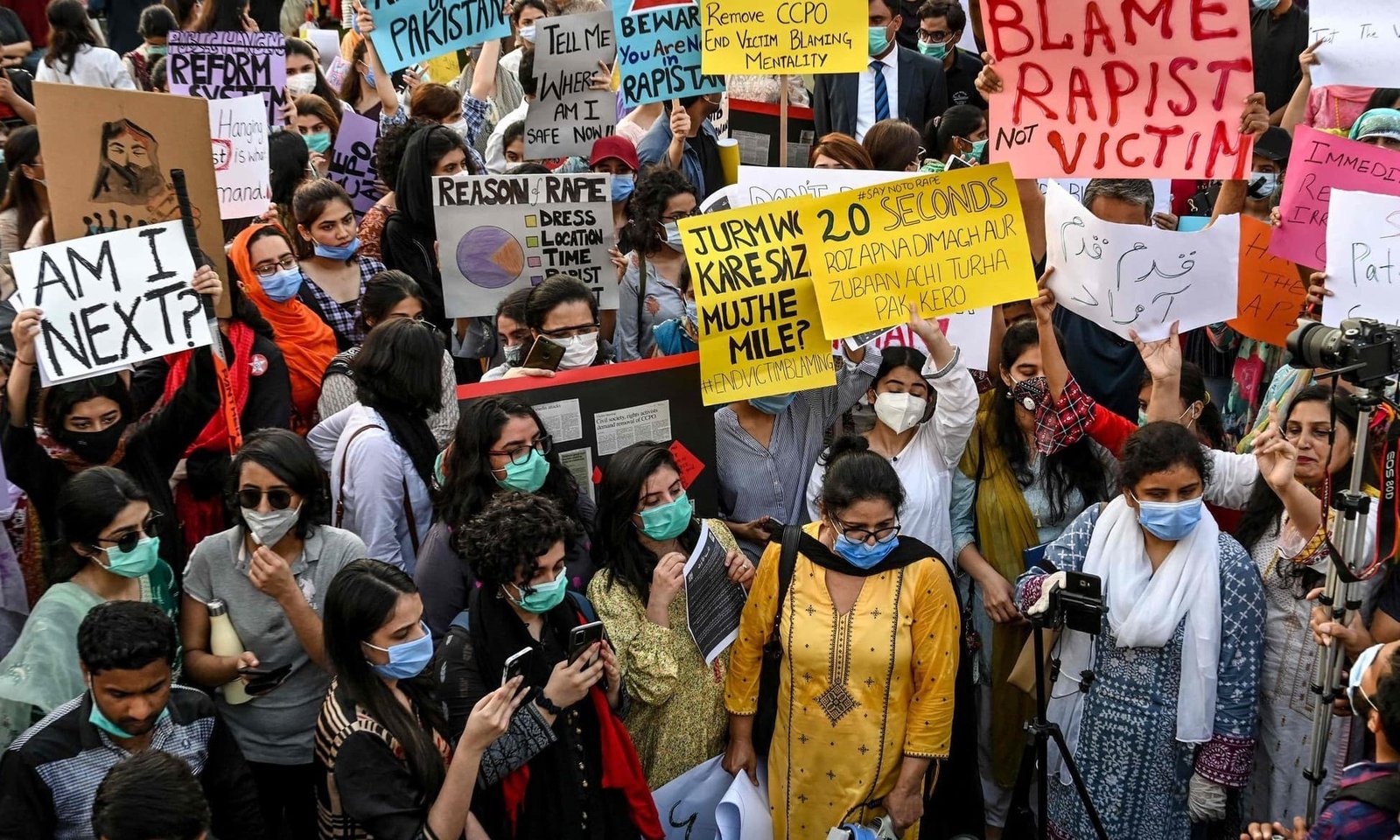
- Shattering the Silence: Addressing Women's Rights and Rape in Pakistan
- By Maimoona Sheharyar
- DEC 25, 2024
Share on:
Introduction:
Honor killings, domestic abuse, acid attacks, sexual assault, human trafficking, forced marriages, Rape, and other types of violence against women are regrettable realities in Pakistan. These horrible deeds mostly target women and girls, trapping them in a vicious cycle of discrimination and terror. It is crucial to raise awareness of the various forms of violence against women and to seriously consider the shortcomings in the social and legal systems that allow these crimes to continue. Pakistan, which ranks 145th out of 146 countries on the gender equality index, offers startling data that highlights the rape epidemic there: In Pakistan, women are raped every two hours. Less than 3% of rape cases in the nation result in a conviction. When we legitimize the belief that males merely can’t regulate their sexual want and urge in the presence of women and that women are therefore responsible for protecting themselves from being raped, rape culture in Pakistan is strengthened on all fronts. The government or society has not guaranteed their safety. In Pakistan, women, particularly those from highly marginalized populations, have experienced such severe threats to their existence that they find it difficult to coexist with other people. It’s not that rape is not illegal according to our laws. According to Pakistani law, rape is a crime that carries a 25-year jail sentence or a lifelong prison sentence. Additional legislative improvements have been implemented throughout time, including the new anti-rape statute that involves chemical castration of repeat rapists and the creation of special tribunals for rape trials in December 2020. But laws like this one, which support the death penalty for rapists to serve as “examples,” divert attention away from the real causes of sexual assault, which are a patriarchal society that views women as nothing more than objects of sexual desire and the normalization of victimization. In Pakistan, the culture of rape is strongly ingrained, justifying male aggression and holding women accountable for attacks. While men are frequently given the benefit of the doubt under the pretext that “boys will be boys,” women are held accountable for their safety and subjected to unattainable standards. Protectors and patriarchal traditions that uphold inequality benefit even good guys. Although the female body is commodified in this culture, sexual violence can happen to anyone. Challenging dynamics of power and imposing responsibility in the legal system and society are necessary for dealing with this.
Statistics and Realities:
A country’s ethical core is defined by the security and worth of its women. Unfortunately, though, Pakistan is in unstable waters. The nation was ranked 145th on the gender equality index in 2022 as a result of data indicating a “rape epidemic,” in which rape occurs every two minutes, mostly due to a dismal 3 percent conviction rate. In 2023, there were up to 6,624 recorded occurrences of rape, or one rape every 45 minutes, according to statistics. With 728 cases, Faisalabad topped the list, followed by Lahore (721) and Sargodha (398). In 2023, up to 626 women were abducted, 120 were slain for their honor, and 20 were sold. Rahim Yar Khan, Lahore, and Faisalabad were a few of the districts where such offenses were most common. The majority of Pakistani women experience a double standard whereby our safety is both ostensibly in our control and that of the men in our family. After nightfall, we have to hide and stay inside, yet during the day, harassment is regarded as a risk of being a woman. When harassed at work, we should avoid being alone with men; when harassed at home, we should remain inside. We must appear appealing to receive a marriage proposal, but doing so entails “asking for it.” Never mind that no one needs to be harassed, raped, abused, or bullied—the issue that is constantly asked is what we did to deserve it. For this reason, Pakistan has a systemic rape culture. It is perpetuated on many fronts, from the accusation that women “got themselves raped” to the false expectation that males won’t rape women.
In Pakistan, rape is officially considered a criminal offense punishable by up to 25 years in jail and, in certain situations, the death penalty. Any woman who has experienced the system, however, will tell you how poorly it is managed by the governing bodies, who prioritize penalizing rape victims over the criminals who commit the crime. Rape survivors must cope with severe societal reactions in addition to the pain of being assaulted sexually, which frequently starts with their immediate families and spreads to the wider society. Most decide not to report rape because they are commonly harassed when they attempt to do so. Moreover, only a small percentage of recorded cases—a small portion of actual cases—have rapists convicted in Pakistan, at a rate of less than 2%. In this case, the truth is still that something is not considered criminal until it is regarded as such, and that can only occur when it is consistently penalized. If legal measures are prescribed for a criminal act, there is no assurance that they will be implemented. The facts surrounding sexual assault in Pakistan point to a pervasive issue marked by worrisome figures and structural shortcomings. Even though rape is a common crime and conviction rates are low, victimization and secrecy are encouraged by society’s attitudes, which deter victims from pursuing justice. The problem is made more difficult by the legal system’s shortcomings and cultural traditions that place a higher value on family honor than victim support. To tackle this issue and ensure victims receive justice, extensive and immediate changes in legal structures and societal attitudes are needed to interrupt the cycle of violence. We can only expect to make Pakistani women and girls’ lives safer by working together.
Challenges To Justice:
In Pakistan, women are underrepresented in all spheres of society, particularly education. This contributes to the high percentage of illiteracy among women, which worsens the comprehension of their rights in case of a violation. The low literacy rate is related to the difficulties women encounter in obtaining justice for any form of maltreatment or domestic assault. The dislike and discrimination against women in society is known as cultural misogyny. When violence and enmity against women are taken into consideration, Pakistan came in sixth place on the list of nations where women are most damaged in 2018. Women in Pakistan frequently experience emotional and physical abuse at the hands of their spouses. The recent rape of a woman who was traveling from Lahore to Gujranwala has come to light. She was viciously raped in front of her small children, and the high-ranking police official’s “victim blaming” response highlights the pervasive misogyny against women in society. Even in a patriarchal state like ours, women nevertheless face numerous obstacles and persistent marginalization in their pursuit of justice. Misogyny acts as a barrier that prevents women from obtaining fairness. The police’s inquiry in situations involving violence against women is significantly more efficient. The aspect of decadence is included in the probe from the moment the FIR was filed. According to one study, when a case is first opened, police officers mistreat and discriminate against women. However, not a single cop has faced criminal charges for harboring such anti-feminine attitudes. Although it is required for a female police officer to be present when filing a formal complaint, in practice, this requirement is ignored because there aren’t enough female employees in police departments. The male officials, who are the offspring of a patriarchal culture, must be faced by women. For women, obtaining justice is a difficult journey. Women are not allowed to visit the courts and even those who do sometimes obtain justice at a steep discount. Despite their best efforts being in futile, they insist that their rights be enforced. However, Pakistani women are unable to afford to stop working hard in the courts. The prevailing belief is that if a woman is being sexually assaulted, she should keep quiet since doing so would ruin her sense of modesty permeates the criminal justice system. The socio-legal hurdles that prevent women from accessing the justice system are the fundamental cause of the issue. These barriers prevent women from accessing justice. Stakeholders must give this issue careful consideration to assist women who are having difficulty navigating the legal system.
Recommendation:
- There is an urgent need to increase the emphasis on women’s rights and designate specific positions in the court system for women to give free legal assistance to the female victims of the community.
- To make the problem of marital rape more socially acceptable, religious academics ought to openly denounce the practice and offer proof based on their beliefs.
- Women are frequently discouraged from exposing rape in Pakistani society due to patriarchal ideals and customs like honor culture. It’s important to alter these mindsets.
- Enhancing the proportion of women in legislative and policymaking might improve the sensitivity of legal processes to concerns pertaining to women.
- Start large-scale media efforts to educate the public on women’s rights, victim’s legal options, and the significance of reporting RAPE. Along with addressing the stigma associated with rape, these initiatives ought to promote candid conversations about authorization and sexual education
Conclusion:
To properly tackle the pervasive issue of rape and women’s rights in Pakistan, a multimodal approach is required, involving legal modifications, public attitude alterations, and vast victim support networks. The issue is quite serious, as seen by the shockingly high rates of sexual assault and the appallingly low conviction rates. Despite present legislation, systemic barriers and deeply ingrained cultural norms continue to impede justice and perpetuate a victim-blaming culture. To end the culture of rape, women must be educated to become more powerful, more women must be represented in the legal and policymaking spheres, and an environment of accountability and support must be promoted. Pakistan can only aim to create a society in which females feel more secure and empowered.
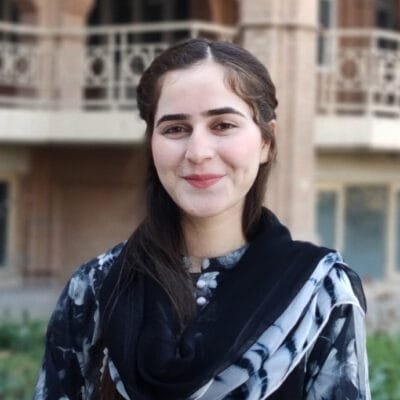
About the Author
Maimoona Sheharyar, a graduate of the International Relations Department at the University of Peshawar, has been a passionate advocate for women's empowerment and gender equality. As an active member of the departmental newsletter and journal, The Mosaic, she used her writing to raise awareness and drive social change. Maimoona’s work focuses on human rights, with a special emphasis on women's rights in Pakistan. Through her powerful words, she aims to shed light on the challenges faced by women and contribute to meaningful discussions about human rights in the country. Her vision is to be a voice for the voiceless and a beacon of hope for marginalized communities, striving for a future where every individual’s rights are respected and upheld.
The opinions expressed in these articles are solely those of the authors and do not reflect the views or positions of the organization. If you find any information incorrect, please contact (research@worldantiextremism.org), and we would be happy to assist you. You can download, distribute, and reuse this work, provided you credit the author and cite the original source.
Related Articles
Subscribe to our newsletter and stay updated.
Contact
Toronto, Ontario, M1L 0E5 Canada
Subscribe to our newsletter and stay updated.
Contact
Toronto, Ontario, M1L 0E5 Canada
Subscribe to our newsletter and stay updated.
Contact
Toronto, Ontario, M1L 0E5 Canada


